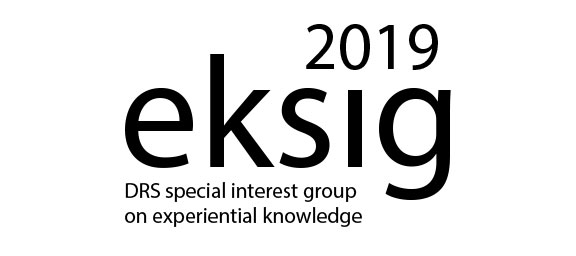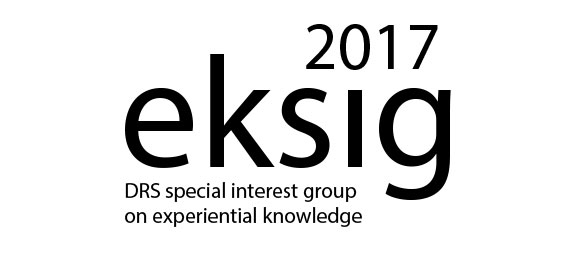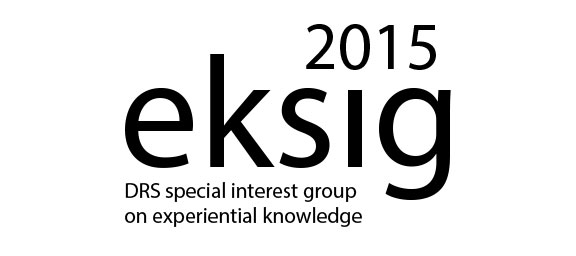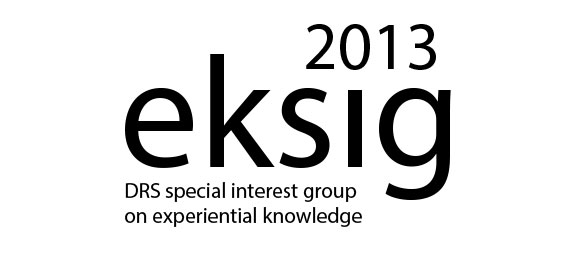EKSIG 2019 Knowing Together – experiential knowledge and collaboration
International Conference of the DRS Special Interest Group on Experiential Knowledge at Estonian Academy of Arts, 2019
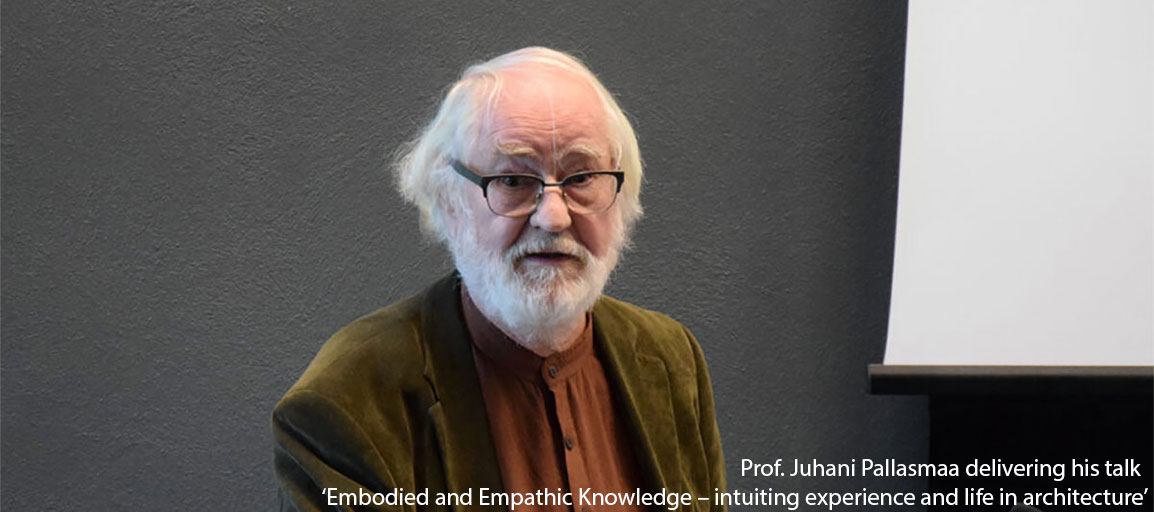
Date: Monday and Tuesday, 23–24 September 2019
Venue: Estonian Academy of Arts, Estonia
EKSIG 2019 addresses the theme of 'Knowing Together – experiential knowledge and collaboration'.
- Ron Wakkary, Professor, School of Interactive Arts and Technology and Founder of Everyday Design Studio, Simon Fraser University, Canada
- Juhani Pallasma, author of The Embodied Image (2011) and The Thinking Hand (2009)
With the theme ‘Knowing Together – experiential knowledge and collaboration’ the conference aims to provide a forum for debate about knowledge generation in collaboration by professionals and academic researchers in the creative disciplines and beyond.
Creative practice has transformed from one based on the production of material artefacts to one that engages expertise and knowledge from multiple disciplines. Recent research in the creative disciplines has revolved around the changing territorial context of ‘making’ and has increasingly involved professionals and academic researchers working collaboratively to explore an interdisciplinary inquiry. Collaboration in such research has therefore become vital. A research team may comprise different disciplinary experts, such as scientists, technologists, artists, designers, architects, psychologists, business strategists and policy makers, working across academic, commercial and public sectors. They may work with materials and/or non-materials. Examples include research the fields of New Materials, Smart Textiles, Virtual Materiality, Material Innovation, Embodied Ideation, and Participatory Practices in Business in which various partners are in dialogue with one another, developing, consolidating and enhancing knowledge while generating new opportunities for interdisciplinary knowledge exchange.
EKSIG 2019 aims to examine collaboration within research and commercial teams that comprise creative professionals/researchers (such as designers, artists, architects, etc.) and members with other diverse disciplinary expertise. This is to understand how individual experiential knowledge, or knowledge gained by practice, is shared, how collective experiential knowledge is accumulated and communicated in and through collaboration, and how it is embodied in the outputs and may be traced back to the origin of the practice. The conference also aims to illuminate ‘making’ as the action of change in which matter and materials are transformed through collaboration, interaction or negotiation between the collaborative team and their material and non-material environments.
This conference welcomes contributions exploring and discussing experiential knowledge generated when researchers and practitioners collaborate with experts in other fields. We interpret collaboration here in the widest possible sense to include any kind of working together. We are interested in building a rich collection of case studies that illuminate the relationships built within the collaboration, the approaches used and the new knowledge gained and transferred within the team. This is expected to contribute to a more systematic approach for studying and integrating experiential knowledge into collaborative practice and research.
Questions of interest are for example:- What are the current understandings of collaboration and interdisciplinary research?
- How can collaboration be utilised within the framework of research?
- How can a researcher’s disciplinary expertise benefit collaborative research and practice?
- How can we articulate material (and immaterial) knowledge which are tacit and embodied within the process of research?
- How can skills and embodied knowledge in different professional disciplines be shared and/or applicable to one another in a collaborative practice?
- How can we gain and communicate individual and collective experiential knowledge in and through collaboration, and how is it embodied in the outputs and may be traced back to the origin of the practice?
- What means and methods can be utilised to transfer and replicate tacit knowledge accumulated in collaborative practice?
Kristi Kuusk, Estonian Academy of Arts, Estonia
Nithikul Nimkulrat, OCAD University, Canada
Julia Valle Noronha, Estonian Academy of Arts, Estonia / Aalto University, Finland
Camilla Groth, University of Gothenburg / University of Southeast Norway
Oscar Tomico, ELISAVA, Barcelona School of Design and Engineering, Spain / Eindhoven University of Technology, the Netherlands
Kristina Niedderer, Manchester Metropolitan University, UK
Nithikul Nimkulrat, OCAD University, Canada
Kristi Kuusk, Estonian Academy of Arts, Estonia
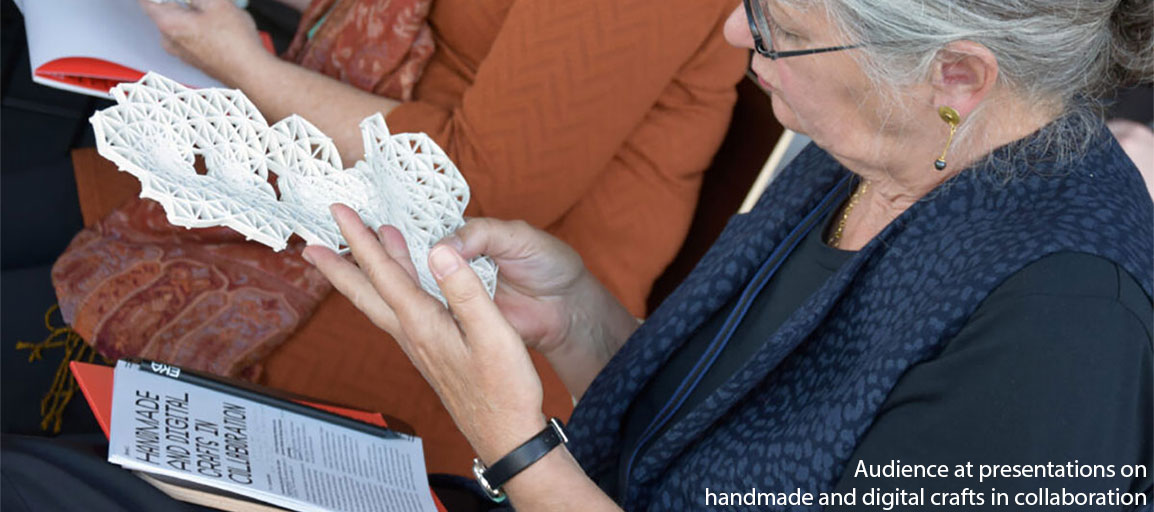
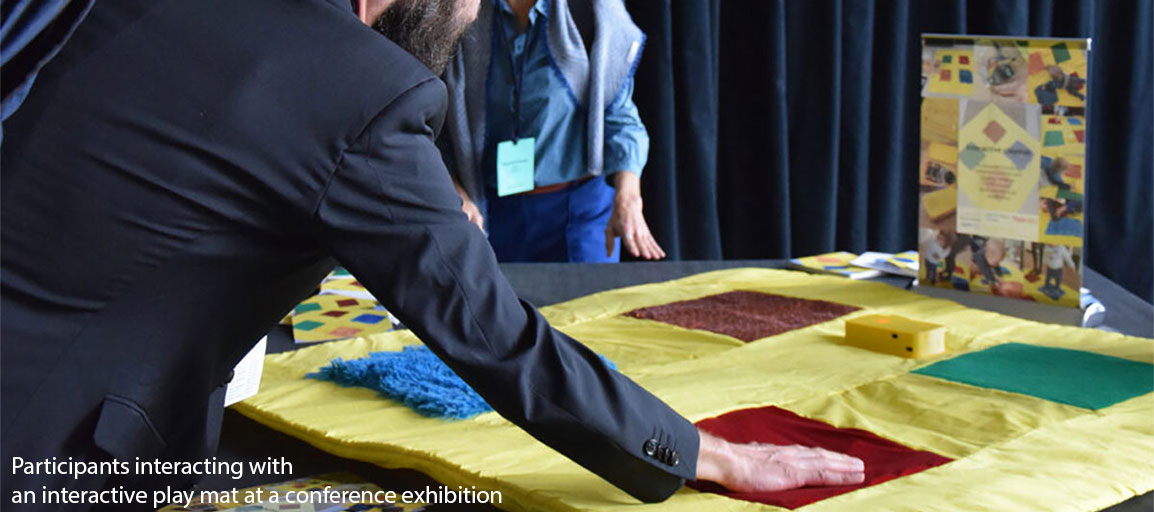
(Photographs: Kristiine Špongolts)
